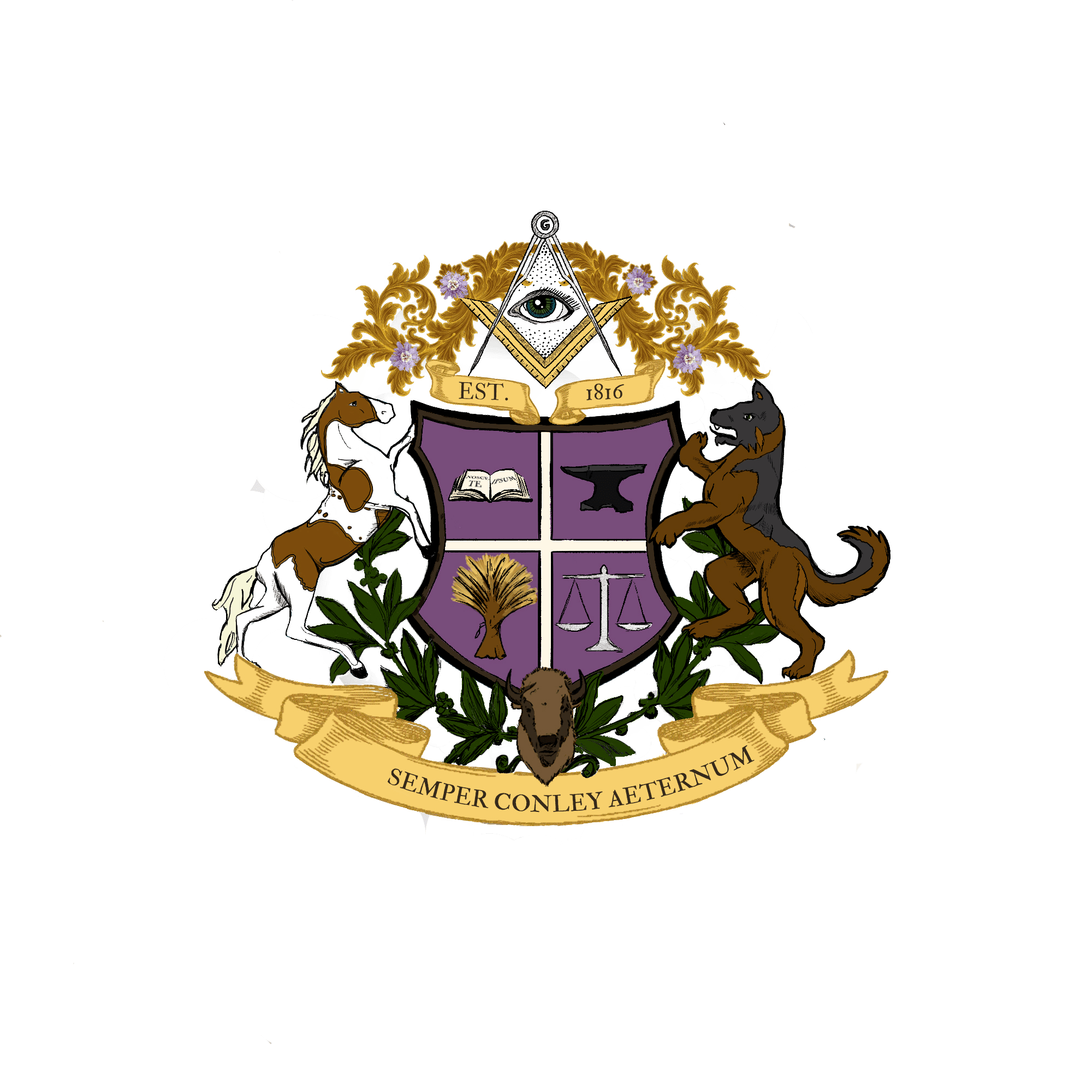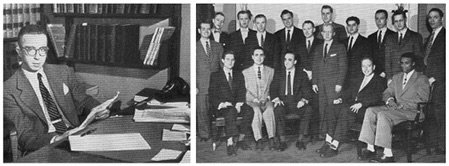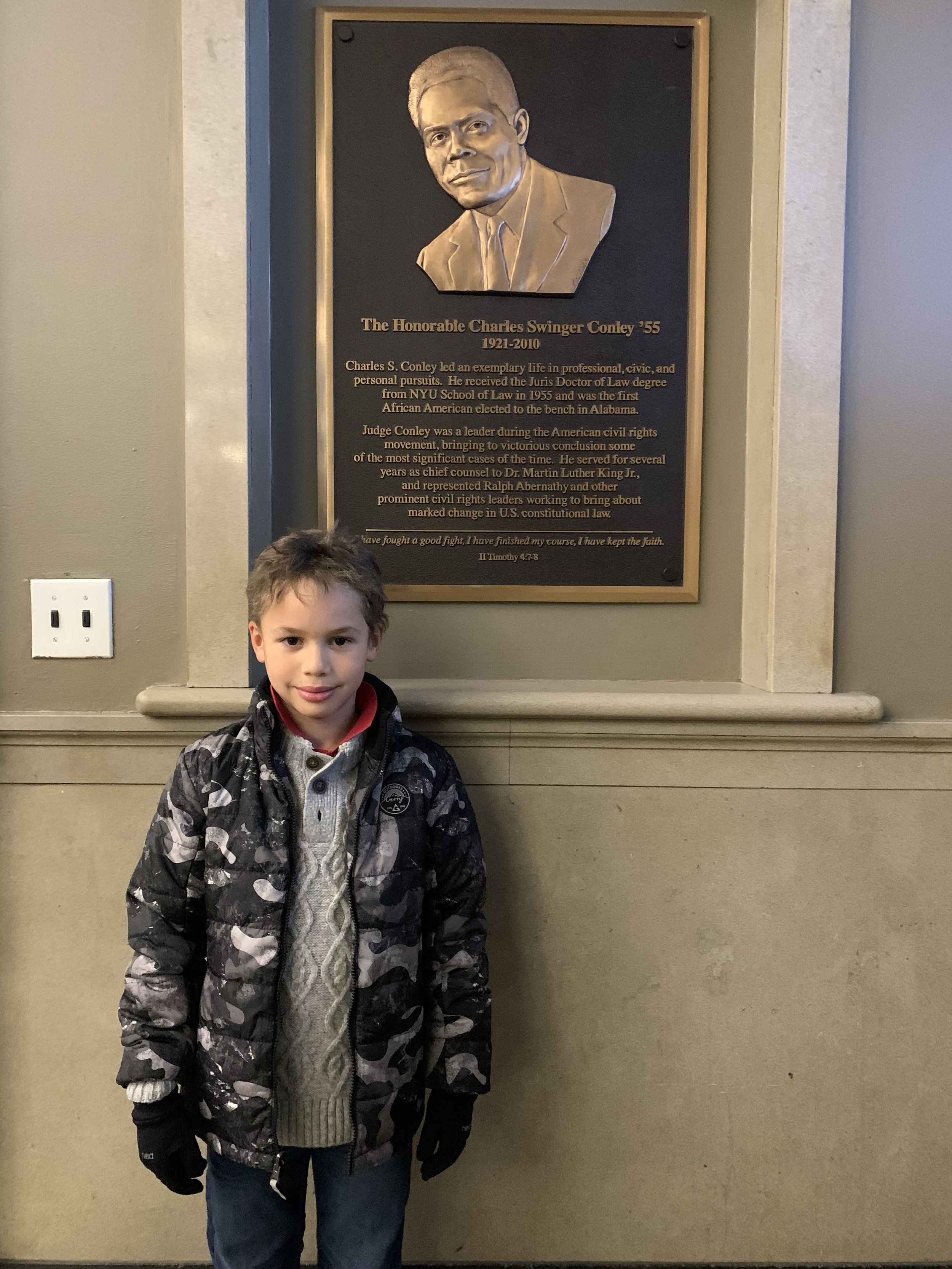CHARLES S. CONLEY (1921-2010)
LEGAL GIANT
Charles Swinger Conley was an American attorney, and pivotal figure in the legal arguments that impact the First Amendment of the United States Constitution - the right to express opinions without government restraint. In the United States, the First Amendment guarantees free speech, and Charles. S. Conley wrote consequential legal briefs for a series of landmark cases, which defined what types of speech are—and aren’t—protected under U.S. law.
An extraordinary intellectual, he earned a B.A. from Alabama State University, two Master’s Degrees from University of Michigan, and a law degree from New York University (NYU) before becoming a law professor.
In 1972, Charles S. Conley was elected U.S. District Court Judge, becoming the first Black American in the history of Alabama to hold that position. He was elected again in 1976.
Courtesy of United States Justice Department
1921 - 1955 THE ORIGINS OF CHARLES CONLEY
Conley was born in 1921, in Montgomery, Alabama. He was the youngest son of Prince Edward Conley and Fannie Thompson Conley. He spent his childhood with siblings Sadie and Louise in the central Montgomery’s thriving Black American community that centered around Oak Street. His father, Prince Edward Conley (1893-1974) was the son of Andrew Conley (1870-1920). Andrew was the son of Felix Conley, the cerebral, intellectual son of James & Jane Conley. Charles was one of many Conley namesakes of Charles Hamilton Conley, the family’s World War 1 icon, and Quartermaster serving under General John J. Pershing.
Charles Conley showed extraordinary intellectual gifts at a young age. After earning a Bachelor of Science degree from Alabama State University, he joined the U.S. Air Force, rising to Corporal United States Air Force, during his service from 1943-1946 in World War 2.
After the War, Charles returned to university studies, earning a Master of Arts in Education from University Michigan in 1947. He stayed in Ann Arbor, Michigan another year, earning a Master of Arts in History in 1948.
World War 2 draft registration for Charles Conley.
Charles S. Conley enjoyed deep, rich friendships with his fellow students at NYU Law School, especially Martin Lipton and other Jewish students. NYU had already established itself as a welcoming environment for Asians, Blacks, Jews, Latinos, and the descendants of European ethnicities who arrived a the turn of the 20th century. However, upon his graduation from NYU, he received no offers from major firms. Few ethnic minorities were hired by major law firms in the 1950s, and most became professors or opened their own small legal firms catering to their own respective ethnic communities.
Wachtell, Lipton, Rosen & Katz was founded in an era when ethnic minorities were largely ignored by major law firms across the country. Charles S. Conley’s relationship with Wachtell, Lipton, Rosen & Katz stretches all the way back to the founding of the firm when Conley made the decision to return to Alabama.
Marty Lipton, founder of Wachtell, Lipton, Rosen & Katz, now one of the more powerful law firms handling mergers & acquisitions in America.
THE DAWN OF THE CIVIL RIGHTS ERA
1955-1960
In order to scale the methods and organization of the successful Montgomery Bus Boycott to a national level, the Southern Christian Leadership Conference was formed in 1957, with Martin Luther King as its founder and Charles Conley as the first of its many lawyers.
Although the NAACP was an older and more prestigious organization, the SCLC was younger, more vibrant, and represented the voice of a new generation. Conley was more than eager to lead the legal charge for King.
The organization operated primarily in the South and some border states, conducting leadership-training programs, citizen-education projects, and voter-registration drives. In the several years that he served as attorney-of-record for Dr. Martin Luther King, Jr., he was also the primary lawyer for the King Family.
Attorney Conley returned to Montgomery, Alabama just as the young Martin Luther King Jr. had been named pastor of the Dexter Avenue Baptist Church in Montgomery in 1955.
The two young intellectuals formed an immediate bond, and Charles Conley served as attorney of record for both Dr. Martin Luther King, Jr. and the Montgomery Improvement Association that was formed to coordinate the now-famous Montgomery Bus Boycott that catapulted the Civil Rights Movement to international stage.
Charles took a position as Professor of Law at Florida A&M University, to supplement his income far from the reach of Montgomery’s power structure which had targeted him for helping King.
His legal arguments challenging Montgomery’s segregation laws, thrust Charles Conley into the national legal spotlight.
THE TURBULENT SIXTIES
1960 to 1970
In 1960, an even younger sub-set of the young iconoclasts of the SCLC decided to form their own organization geared towards mobilizing students at colleges and universities. The Student Nonviolent Coordinating Committee (SNCC) was formed in April 1960 at a conference at Shaw University in Raleigh, North Carolina. Charles S. Conley reprised his role as founding legal counsel, as Martin Luther King had sent out the invitation for all attendees.
Quickly, the relationship between the SCLC and SNCC turned into a tense partnership. The young university students of SNCC resisted the highly educated, excessively intellectual, socially polished style of Martin Luther King and his main allies at SCLC. The SNCC organization wanted a grass-roots approach, focused less on complex legal arguments and more on aggressive protests.
The criticisms of King's "messianic" leadership of the SCLC by the SNCC leadership soon resulted in an irrecoverable break between the organizations. In 1966, the 24-year old Stokely Carmichael took over SNCC and asked the membership, "What do you want?." They roared back "Black Power! Black Power!" Martin Luther King, Charles Swinger Conley, and their intellectual cadre of lieutenants would withdraw from all involvement with SNCC.
A RETURN TO CONSTITUTIONAL LAW
Charles continued his groundbreaking legal work, including desegregation cases challenging public libraries, which largely denied admission for Americans of African lineage. Before Charles S. Conley, most libraries in which most Black Americans worked or conducted research were either private or affiliated with universities. After Martin Luther King’s assassination, Charles S. Conley would continue legal representation of Ralph Abernathy, Joseph Lowery, Fred Shuttlesworth, and S.S. Seay.
THE SEVENTIES: ATTORNEY CONLEY BECOMES FEDERAL JUDGE CONLEY
By 1970, Charles S. Conley was referred to as ‘brilliant’ by other lawyers from coast to coast. In 1972 he was elected to Macon County senior judgeship which became a Federal District Court. He won re-election in 1976. He was the first U. S. District Court Judge of African descent in the history of Alabama.
He maintained his relationships with crusading lawyers Virginia Foster Durr, Fred Gray, and visiting counsel such as New Yorkers William Kunstler and Arthur Kinoy.
THE LEGACY OF CHARLES S. CONLEY
Charles S. Conley donated $1.2 million gift to his alma mater NYU Law School which endowed the Honorable Charles Swinger Conley Scholarship Fund. Over the course of five decades, he donated financial resources and his time to the support of NYU School of Law which he credited with his development as a legal scholar.
His financial contributions also funded a permanent memorial at the Law School honoring Conley’s outstanding legal accomplishments and historic career. Wachtell, Lipton, Rosen & Katz is the Trustee of Conley’s estate and his charitable gifts to legal scholarship.
The entry way to the school main administration building, Vanderbilt Hall, is dedicated to his lifelong affiliation with the school.
A memorial plaque was placed in special ceremony led by Conley’s close friend, Class of 1955 classmate, and legal colleague, Martin Lipton. Conley’s wife Ellen, confidant and protector attended the ceremony with Law School Dean, Richard Revesz in 2012.
SIGNATURE CASES:
Conley was engaged in a full-scale legal battle for civil rights, which affects every American today.
In Cobb v. Montgomery Library Board, Conley prevailed and the U.S. District Court in Montgomery ordered the library desegregated. Every Person of Color in America who walks through a library door owes a small debt to Judge Conley.
In Seals v. Wiman, the U.S. Court of Appeals for the Fifth Circuit in New Orleans ruled in favor of Conley’s challenges to the composition of jury rolls that violated the 14th Amendment.
In the landmark Supreme Court case New York Times Co. v. Sullivan. He represented four civil rights leaders as coplaintiffs with the New York Times, in a case that ultimately established an “actual malice” standard had to be met before news accounts about public officials could be deemed libelous.
Gwendolyn M. Patton vs. Billy Joe Camp (AL Secretary of State)
Touncey vs. New York Life Insurance, Co.
A young Conley visits the Conley Atrium plaque in Vanderbilt Hall at NYU, commemorating the life and career of Charles S. Conley.













